Editorial
Editorial: Trump & Harris want weed legalized, ignore downside
Published
6 months agoon
By
admin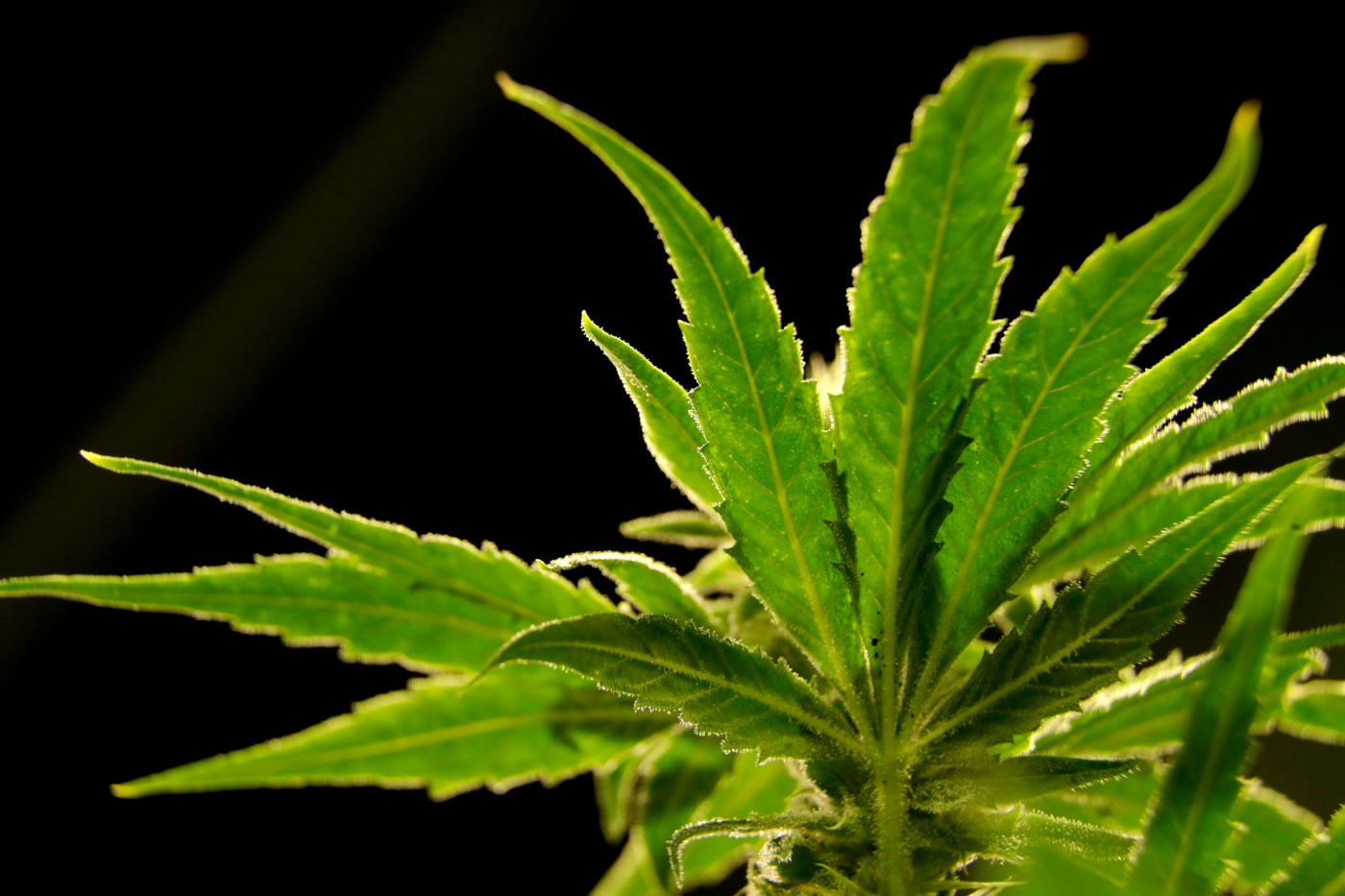

Legalizing marijuana isn’t as hot-button an issue in this election as abortion or immigration, but both presidential candidates former President Donald Trump and Vice President Kamala Harris have weighed in, and for once, they’re in agreement.
Both, however, are missing a big point.
Last month, Trump posted on the Truth Social platform: “As I have previously stated, I believe it is time to end needless arrests and incarcerations of adults for small amounts of marijuana for personal use. We must also implement smart regulations, while providing access for adults, to safe, tested product. As a Floridian, I will be voting YES on Amendment 3 this November. As President, we will continue to focus on research to unlock the medical uses of marijuana to a Schedule 3 drug, and work with Congress to pass common sense laws, including safe banking for state authorized companies, and supporting states rights to pass marijuana laws, like in Florida, that work so well for their citizens.”
You may like
-


Does Comfort Food Actually Help
-
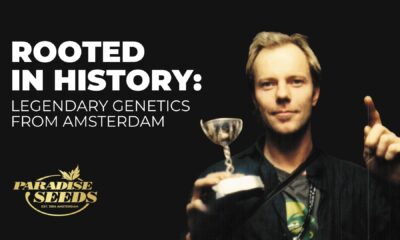

Connect to cannabis history with three legacy strains from Paradise Seeds
-


This State’s Cannabis Revenue Keeps Pouring In
-


Major Bloom: Cultivating community, creativity, and cannabis in Worcester
-


How a Colorado operator stumbled onto ‘blueprint for laundering marijuana’
-


Northern Ireland: Man charged after £425,000 worth of cannabis seized
All about Cannabis
What is Vivek Ramaswamy’s Position on Cannabis? – Cannabis | Weed | Marijuana
Published
1 year agoon
October 2, 2023By
admin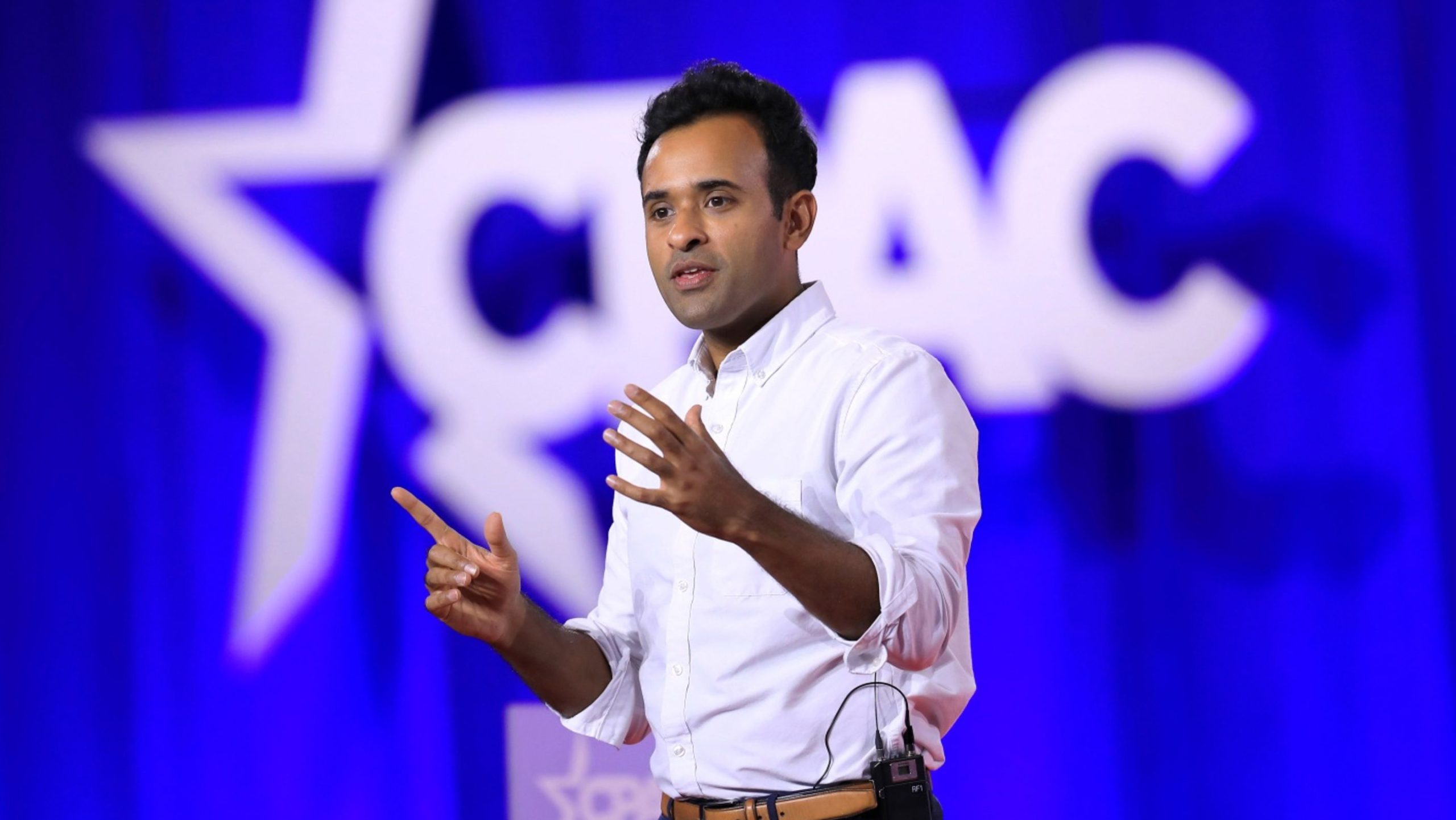
What is Vivek Ramaswamy’s position on cannabis? “You don’t hear me talk about the war on drugs. I’m not a war on drugs person,” Ramaswamy said when he appeared at a Free State Project event in New Hampshire last June.
Vivek Ramaswamy is an American entrepreneur seeking the Republican nomination to run for President of the United States.
Ramaswamy told the crowd he was “probably the only person in the modern history” of the Republican Party to talk about decriminalizing drugs for people with PTSD and other mental health problems.
“Psychedelics,” he said specifically. “From ayahuasca to ketamine… That’s gotta be part of the solution.”
But what is Vivek Ramaswamy’s position on cannabis? He told Fox News:
We got to catch up with the times. It’s not a popular position in the Republican Party, but I’d just, again, I guess I’m going to speak the truth. Whether you vote for me or not is your choice. I think the time has come to decriminalize it.
Later, a spokesperson from his campaign said:
The current state-level ‘legalization‘ farce contributes to the culture of lawbreaking. It’s literally against the law. For us to pretend otherwise only undermines the rule of law in this country. For that reason, Vivek favors the federal legalization of marijuana.
What is Vivek Ramaswamy’s Position on Cannabis?
What is Vivek Ramaswamy’s Position on Cannabis? Decriminalization or legalization? Once upon a time, those meant the same thing. And indeed, in America, this may still ring true.
Vivek isn’t shy about wanting to rule by executive fiat. Suppose he’s the next U.S. President and unilaterally deschedules cannabis. Not a rescheduling, a complete descheduling.
As far as the federal government is concerned – cannabis is not its business.
Is that decriminalization or legalization? For operators in legal states, it certainly helps their tax situation. And why would the financial system fear a plant the government has delisted as a controlled substance?
Is that legalization or decriminalization? Or are those terms synonymous?
If a Ramaswamy Administration removed cannabis from the Controlled Substances Act entirely, there would be a few implications.
Implications of De-Scheduling Cannabis
Vivek Ramaswamy’s position on cannabis could empower state-level regulations. If the federal government takes a literal hands-off approach, you could argue that’s not legalization.
But is legalization ideal? Should Washington D.C. force states like Idaho to legalize? Suppose people in Idaho want to consume cannabis legally. There are 23 other states they can move to, including next-door neighbors.
Even if all 50 states legalized – isn’t it better to have local regulation of a competitive and complex modern industry? Think of the supply chain: cultivation, production, packaging, distribution, sales, marketing, and everything in between.
Do you want D.C. bureaucrats in charge of all that? Isn’t that how lobbyists capture the process and rig the rules against the little guys?
When The Feds Do Get Involved
Of course, some will argue Vivek Ramaswamy’s position on cannabis can’t be entirely hands-off. Somebody is going to have to regulate interstate commerce and international trade.
Imports and exports are federal jurisdiction and always have been. Of course, Vivek’s brand of governing may detest interstate regulation. A Ramaswamy Administration may create a free-for-all for all industries, not only cannabis.
One can hope.
And, of course, FDA bureaucrats will want to control aspects of cannabis, especially if it’s used in food products or marketed as a medical treatment. In a sense, descheduling and taking a hands-off approach empowers the existing bureaucracy.
But Vivek can use the stroke of the Presidential pen and tell the FDA to buzz off. Such is the state of the American “republic.”
Of course, if Vivek Ramaswamy becomes President, he won’t be able to decline the tax revenue. Who can, really? Except for maybe Ron Paul.
So, the federal government may tax cannabis. And so Vivek Ramaswamy’s position on cannabis matters a great deal.
But there’s something else. And it involves Vivek’s policy on the Federal Reserve Bank.
Vivek Ramaswamy’s Position on Cannabis & Money Could Change the World
Vivek Ramaswamy’s position on cannabis and money could change the world. And here’s how.
Experts must control money. That’s what the experts say. That’s why supply and demand don’t determine interest rates. You can’t trust free markets, they say. You need a central planning committee of experts.
But when the hell has that ever worked? This is not the 1920s, this is the 2020s. We have evidence of central planning, and the results are far worse than any of the theoretical excesses of free-market capitalism.
But suppose the experts are right about one thing. The price of money is too volatile to leave to a truly random process. That there should be a more market-based approach to price stability.
As in, leave it to the experts, but not the boardroom suits. Leave it to the people who are actually buying and selling in the market on a daily basis.
Like Vivek Ramaswamy’s position on cannabis, his proposal for the Federal Reserve is a breath of fresh air—a novel idea in an age of corporate-state shallowness.
What is a Government Gold Standard?
A country on a gold standard exchanges its currency for gold at a fixed rate, say, $35 an ounce. And vice versa. So, if the market price of gold goes beyond $35, people bring in their dollars to exchange for gold.
This process means the number of dollars in circulation decreases, so the value of the dollar increases. This continues until the market price of gold is back to $35.
If the market price drops below $35, the same process works in reverse. Historically common, it’s not without its flaws. Governments tinker with the mechanism like a curious 12-year-old who takes apart the television to see how it works (and ends up breaking it in the process).
A gold standard keeps the value of the money constant relative to the market price of gold. Economists have all kinds of critics and rebuttals as to why that wouldn’t work today in the “modern” economy.
To their credit, relying on gold as the sole commodity backing the government currency does run into problems. Especially when governments are always trying to cheat the system.
Vivek Ramaswamy’s position on cannabis stems from listening to the people and the real experts (i.e. not “public health”). He is responding with the correct answers. He has – more or less – done the same with the subject of the Federal Reserve and the money.
What is a Commodity Bundle Standard?
Vivek Ramaswamy should combine his positions on money and cannabis.
Vivek wants a commodity bundle standard to help solve the problem of using government currency. In this system, the market defines the U.S. Dollar as a collection of commodities. This collection or bundle is valued by what’s in it.
For example, suppose you had one million dollars. You take it to the bank and demand your bundle. It could consist of a few pounds of gold and silver, but it’d mostly be a claim on commodities (i.e. 100 pounds of grade A beef, 10 barrels of crude oil, 1,000 board feet of lumber).
Likewise, anyone who brings in a bundle (the claim on commodities) gets a million dollars. This keeps the bundle’s price at a million dollars and, thus, a stable purchasing power, assuming nobody is messing with the bundle.
Vivek Ramaswamy’s Position on Cannabis & Money Could Change the World
Vivek Ramaswamy could combine his positions on money and cannabis by including 1,000 pounds of industrial hemp biomass and 500 grams of premium-grade cannabis flower in the commodity bundle.
Regarding “changing the world,” you’ll have to refer to some of our past posts on the subject.
The main takeaway: eliminating the elite’s ability to create money out of thin air and charge interest on it can only be construed as a step in the right direction.
In fact, it’s the first step.
addiction
Is Cannabis Addiction a Treatable Medical Condition? – Cannabis | Weed | Marijuana
Published
2 years agoon
September 26, 2023By
admin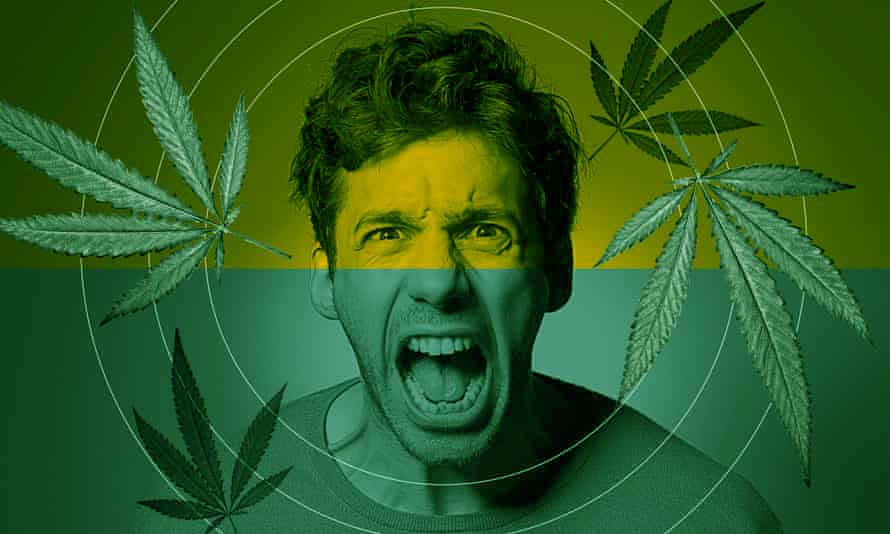
Is cannabis addiction a treatable medical condition? According to one doctor, “cannabis addiction is a real and treatable medical condition.”
She claims the “cannabis legalization movement” has successfully pushed back against this narrative due to the drug war.
Fortunately, Dr. Salwan is not one of these old-school drug warriors. She knows cannabis doesn’t turn people into criminals and that cannabis prohibition has led to the mass incarceration of peaceful (mostly black) Americans.
Dr. Salwan represents the new school of drug warriors. The kind that promotes more opioids to wean people off opioids. That labels drug use as a “treatable medical condition” rather than an activity.
To her credit, Dr. Salwan recommends cognitive behavioural therapy as a solution to “cannabis use disorder” since that’s where the evidence leads her. (But not without mentioning the “promising” FDA medication that will “reduce cannabis cravings.”)
However, Dr. Salwan is on the education faculty for the American Society of Addiction Medicine. In other words – it is tough for Dr. Salwan to see substance use as anything but a medical condition.
What is Cannabis Use Disorder (CUD)?
Is cannabis addiction a treatable medical condition? What is a “cannabis addiction,” anyway? “Cannabis use disorder” (CUD) is a topic we’ve covered before. It’s a myth that refuses to die.
The belief that outside forces determine our thoughts, behaviours, and actions is only becoming more prominent in the culture where neuroscientific theories of consciousness are accepted as “science” despite their philosophical shallowness.
But let’s get to the crux of Dr. Salwan’s argument. “To shake the collective disavowal of cannabis addiction,” she writes, “It helps to understand the clinical paradigm of all drug addictions, or substance use disorders (SUDs).”
So, whether we’re talking about cannabis, alcohol, or opioids, the hallmarks of SUD are always the same, categorized as the three Cs.
Craving: A strong desire to use the substance
Consequences: Negative consequences of using the substance
Control: A loss of control when consuming the substance (or in the pursuit of).
Other residual SUD “symptoms” include developing a tolerance and experiencing withdrawals. But by this definition, nearly every American suffers from caffeine use disorder and a refined sugar addiction.
Is Cannabis Addiction a Treatable Medical Condition?
Of course, “cravings” are just thoughts. Perhaps you’ve “craved” ex-partners when visiting areas that remind you of them. It’s a common human experience. You don’t have to associate your stream of consciousness with your ego and attach yourself to each and every thought.
Especially if you’re breaking a long-term drug habit (or trying to get over an ex).
Likewise, determining whether the consequences of your actions are negative is up to you. So-called “addiction experts” are supposed to be neutral, value-free scientists.
You could drink a case of beer every night. Destroy your liver, your marriage, turn your kids against you, lose your job and house, and end up living on the street. These all sound like negative consequences of drinking.
But if you frame the experience as positive, then who the hell are “addiction experts” to tell you otherwise? It may seem irrational to us, but many prefer to live on the street and use drugs like fentanyl.
This fact of life is lost on many advocates of taxpayer-funded supply of “addiction medicine.” They want to dehumanize someone’s choices and consider them “mentally ill” because they don’t conform to specific social values.
I find it hard to believe that the left-wing advocates making this argument have ever read (or understood) Foucault. Although they’ll claim him as one of their own.
As for the loss of control – despite the persistence of this myth, it remains just that. A myth. No research worthy of the label “science” supports a loss of control.
Some Real Science to Drive Home the Fact
G. Alan Marlatt was an American-Canadian clinical psychologist and researcher in the field of addictive behaviours.
One of his most well-known studies helps answer whether “cannabis addiction” is a treatable medical condition.
Dr. Marlatt took a group of heavy drinkers who qualified as having alcohol use disorder. He separated them into two groups in two separate rooms.
He gave one group cocktails without alcohol. But the cocktails tasted as if they contained booze. He told this group the cocktail did have alcohol in it. Obviously, the participants reported cravings for more, kept drinking, and some even began behaving intoxicated.
He gave the other group cocktails that contained alcohol. But the drinks didn’t taste like alcohol, and he told the group there wasn’t any in the beverage. This group did not report cravings for more and did not binge drink to excess.
Others have replicated Dr. Marlatt’s study. The 3 C’s of addiction are not scientific concepts. They are a belief system of “public health” masquerading as scientific knowledge.
Contradictions in Dr. Salwan’s Article
Dr. Salwan doesn’t seem aware of the contradictions in her article. For example, she writes it’s “heartening that the prevalence of cannabis addiction among U.S. adults remained below 2 percent from 2002 to 2017, even as cannabis use increased from 10 to 15 percent.”
But how does that make sense? Especially since the THC potency has increased. If the drug itself is causing addiction, shouldn’t higher use rates also increase addiction rates?
Dr. Salwan solves this issue by recognizing that cannabis has – more or less – been destigmatized. If you’re not losing your job or falling behind on the bills, who cares if you engage in wake-n-bakes or smoke weed every night after work?
Destigmatization, says Dr. Salwan, is a “desired social outcome.” However, she believes it comes “at the expense of engagement in treatment,” where only 4 percent of people received CUD treatment in 2019 versus 9 percent in 2002.
Think about that. The number of people who have sought treatment for problematic cannabis use has dwindled, and she believes that’s a problem.
If you make your money from “addiction medicine” and by promoting rehabs and treatment centres – then yes, people not viewing themselves as helpless addicts who need your paid expertise is a problem.
This phenomenon of people viewing their cannabis habits as habits instead of an addiction is a step in the right direction. Only ideologues believe “cannabis addiction” is a treatable medical condition.
FDA Drugs vs. Changing Your Mind
As mentioned, Dr. Salwan pays lip service to “promising” FDA drugs to remedy cannabis addiction or CUD. But, as she writes in the article, all evidence points to cognitive behavioural therapy (and others) being more helpful.
And it’s obvious why. These therapies tend to challenge an individual’s thought process and patterns of thinking rather than affirm how they feel and look for a “root cause” somewhere in their childhood.
Cannabis addiction is not a treatable medical condition because addiction is not real, and problems of the mind are not medical conditions.
Addiction is a social construct that feeds into itself.
Much like race. We’re all homo sapiens. But you can divide people by skin colour, create cultures based on these skin tones, and then propagate and control populations according to the beliefs and values of the various “in” and “out” groups you’ve created with this social construct.
Addiction is the same way. Whether it’s cutting back on cannabis, social media or trying to create positive habits like exercising and eating right.
You can recognize your free will and autonomy or believe your habits and preferences are a “disease” or “disorder” of the brain. That you’re masking some underlying cause that only years of therapy and a cocktail of pharmaceuticals will cure.
Dr. Salwan worries that people have been denied access to CUD treatment because of its illegality or because their “symptoms were trivialized.”
And indeed, we’re not trying to trivialize someone who feels addicted. It’s incredibly frustrating. But, like poor race relations stemming from government policy, school indoctrination, and media coverage, this poor relationship between drugs and consumers results from “addiction experts.”
Dr. Salwan’s framing of the issue does not help.
Is Cannabis Addiction a Treatable Medical Condition?
“Cannabis use disorder” is a concept created and reinforced by these so-called experts.
But what about people (i.e. “cannabis addicts”) who strongly prefer the herb with their actions but not in their speech?
It could be they think cannabis helps them cope with some traumatic past.
And it could be that some people just like to get fucked up. For whatever reason, they want to feel numb. And drugs are an effective way of bringing about that state.
But it’s a leap in logic to blame the substance. It confuses cause and effect. It’s putting the cart before the horse in every sense of the term.
All about Cannabis
What is Public Health? – Cannabis | Weed | Marijuana
Published
2 years agoon
September 19, 2023By
admin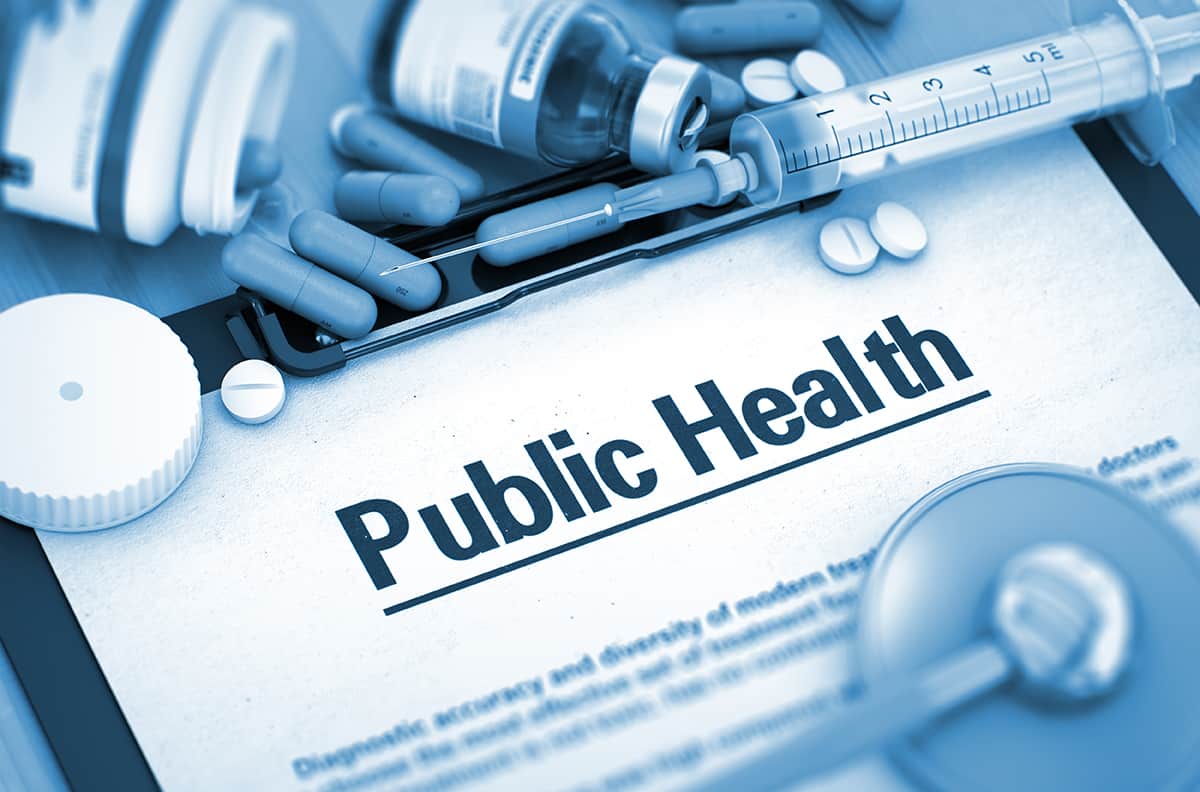
What is “public health?” Since 2020, the term has entered the mainstream, but public health was around long before covid. Canadian politicians crafted cannabis legalization with “public health” goals in mind.
Instead of the traditional argument for legal cannabis, which is that you have a right to your body.
But let’s give them the benefit of the doubt. Like most things in life, let’s apply the 80/20 rule. 80% of “public health” are hapless bureaucrats who believe they are improving the world.
The other 20% are busybody control freaks.
They have the same mentality as the Temperance Movement or the Puritans. These people want to see more restrictions on the cannabis industry because some parents can’t be bothered to keep edibles out of their children’s reach.
These people want to bring back mask mandates despite the lack of evidence of their efficacy.
(If the meta-analysis of randomized control trials came out in favour of masking, we’d never hear the end of it, but because the conclusions didn’t support the narrative, the “fact checkers” have downplayed the study’s significance).
But what is public health? If governments must curtail our fundamental rights in the name of it, then we’ll need more than some broad, ambiguous term.
There is a Public Health Agency of Canada. They say their activities “focus on preventing disease and injuries, responding to public health threats, promoting good physical and mental health, and providing information to support informed decision making.”
But how accurate is this?
What is Public Health?
Is it like a public school? There are all kinds of schools, public and private. “Public” school refers to state-controlled and taxpayer-funded education.
Public school refers to a specific building or system, but “public education” or “public awareness” refers to government messages aimed at the general populace.
So, it’s clear that “public” means anything the state does. It’s a textbook example of doublespeak, in which “public” refers to two concepts.
For example, “public health” can refer to the general health of the Canadian public or the state-sponsored program of “public health,” which varies across different levels of government.
The point is to narrow the range of allowable thought. Suppose we identify public health with government bureaucrats. In that case, no one will seriously ask whether a lack of government “experts” results in better public health (that is, the public’s general health).
If it sounds confusing, that’s the point. That’s why Orwell wrote an entire book on the subject.
No, Really. What Is It?
What is public health? Let’s say it focuses on the well-being of entire communities or regions rather than individual health concerns. They focus on preventing diseases, injuries, and health threats. They do this through massive propaganda campaigns and political interventions.
You could extend the public health definition to food safety standards. Indeed, we consider cannabis, tobacco, and alcohol control the domain of “public health.”
Public health gathers and analyzes data to make reports and advise governments. Canada’s agency thinks “white supremacism” and “climate change” are some of the most significant factors affecting the health of Canadians.
Instead of, you know, cardiovascular diseases, which is Canada’s leading cause of death.
What About Exercise and Nutrition?
A conventional definition may include the promotion of healthy behaviours and lifestyles—things like exercise and nutrition. And indeed, exercise and nutrition are at the core of human health.
But, as was apparent during covid, “public health” doesn’t mean the general well-being of the populace. If that were the case, instead of demanding we place ourselves under house arrest, they would have promoted vitamin D consumption. (I.e. Go for a walk in the sun).
Likewise, obesity was an essential factor in determining whether covid would send you to the ICU. But did public health tell the public to stop consuming sugars and preservatives? To start exercising?
No, that would be “fat-shaming.” Obesity, when not part of the “body positivity” movement, is considered a disease that only pharma intervention can alleviate.
(Likewise, in 2020-21, speaking of “natural immunity” was like saying “Voldemort.” The only approved remedy to covid was an experimental jab that made pharmaceutical companies a lot of money).
If the “public health” experts are scratching their heads, wondering what’s happened to their credibility, then look no further than the inconsistent and corporate-friendly messaging.
We’ve researched who butters your bread, and we’re not happy. But, you know, blame the rise of “online right-wing extremism” instead. See where that leads you.
A Better Public Health
A better public health involves redefining what we mean by “public.” Instead of grouping everyone based on geography, better public health can cater to specific populations.
In essence, better public health prioritizes individual freedoms over collective interests. There is no genuine “collective” interest, just the spokesperson claiming to speak for “the people.”
A meaningful collective requires consent from all its members. And consent is only granted through voluntary association and exchange. The “social contract” justifying government authority is as concrete as the “divine right of kings” that excused monarchs.
“Implicit consent” – that we consent to public health just by living here – is also a poor argument. Applied to a different situation, and it’s justifying immoral actions based on the status of the victim.
In other words – “Of course, we gave her an ultimatum between experimental jabs and bringing home a paycheque. Look at what she was wearing! She was asking for it!”
Insomuch that the government is in the health business, its role should be minimal. Governments can “protect” people from direct harm by enforcing property rights and preventing fraud.
Leave the nutrition and exercise advice to experts who haven’t been bought off by pharma and large processed food manufacturers.
Any “public health” action that involves coercion – such as mandatory vaccinations, quarantine measures, and excise taxes – cannot be justified by typical ethical standards.
You and I can’t force people to behave a certain way under threat of imprisonment.
But this is precisely what “public health” is—part of the apparatus of compulsion and coercion. A better system sees the voluntarily-funded organizations of civil society play more significant roles.
Cannabis Decentralization
Canada never legalized cannabis based on people’s fundamental right to consume this non-lethal herb. The Trudeau government did it for “public health” reasons: to keep it out of children’s hands and crack down on organized crime.
This was all propaganda we routinely debunked. And at this stage in the game, the propaganda discredits itself.
But suppose there’s a small community somewhere in the prairies that doesn’t care for cannabis. They may not even care for alcohol. It may be a dry community with no weed or gambling, and everybody attends church every Sunday morning.
Why should their health information mirror that of a 20-something couple who live in their van, smoke weed and spend their time surfing and snowboarding?
Is “public health” a one-size-fits-all concept, or is this another example of the government’s forced egalitarianism?
How is it in the public’s interest to cap cannabis edibles at 10mg when producers and consumers want higher doses? Who is this “public” these so-called experts are protecting?
As with Canada’s cannabis legalization, or the covid restrictions and vaccine mandates, often the goal of “public health” isn’t to serve the public.
“Trust the Science” is another way of saying “Follow the Money.”
Whether it’s promoting planet-destroying corporate mono-crop agriculture (under the term “plant-based”), false links between cannabis and psychosis, or demanding you inject yourself with experimental pharma chemicals lest you lose your livelihood and thus food on the table and roof over your head.
Public health is a religion. A belief in Science™ and a method that justified lobotomies, Thalidomide, downplayed tobacco’s dangers and over-prescribed opioids.
What is “public health?” It is the enemy of the people.

Does Comfort Food Actually Help

Connect to cannabis history with three legacy strains from Paradise Seeds

This State’s Cannabis Revenue Keeps Pouring In

Major Bloom: Cultivating community, creativity, and cannabis in Worcester

How a Colorado operator stumbled onto ‘blueprint for laundering marijuana’

Northern Ireland: Man charged after £425,000 worth of cannabis seized

Getting THC Edibles in Your Edible Arrangement?

Is Cannabis Legal in California Right Now?

Germany: Trial against operator of Trier cannabis vending machine discontinued

The best energizing THC gummies of 2025 by Leafly

Distressed Cannabis Business Takeaways – Canna Law Blog™

United States: Alex Malyshev And Melinda Fellner Discuss The Intersection Of Tax And Cannabis In New Video Series – Part VI: Licensing (Video)

What you Need to Know

Drug Testing for Marijuana – The Joint Blog

NCIA Write About Their Equity Scholarship Program

It has been a wild news week – here’s how CBD and weed can help you relax

Cannabis, alcohol firm SNDL loses CA$372.4 million in 2022

A new April 20 cannabis contest includes a $40,000 purse

Your Go-To Source for Cannabis Logos and Designs

UArizona launches online cannabis compliance online course
Trending
-

 Cannabis News2 years ago
Cannabis News2 years agoDistressed Cannabis Business Takeaways – Canna Law Blog™
-

 One-Hit Wonders2 years ago
One-Hit Wonders2 years agoUnited States: Alex Malyshev And Melinda Fellner Discuss The Intersection Of Tax And Cannabis In New Video Series – Part VI: Licensing (Video)
-

 Cannabis 1012 years ago
Cannabis 1012 years agoWhat you Need to Know
-

 drug testing1 year ago
drug testing1 year agoDrug Testing for Marijuana – The Joint Blog
-

 Education2 years ago
Education2 years agoNCIA Write About Their Equity Scholarship Program
-

 Cannabis2 years ago
Cannabis2 years agoIt has been a wild news week – here’s how CBD and weed can help you relax
-

 Marijuana Business Daily2 years ago
Marijuana Business Daily2 years agoCannabis, alcohol firm SNDL loses CA$372.4 million in 2022
-

 California2 years ago
California2 years agoA new April 20 cannabis contest includes a $40,000 purse

















